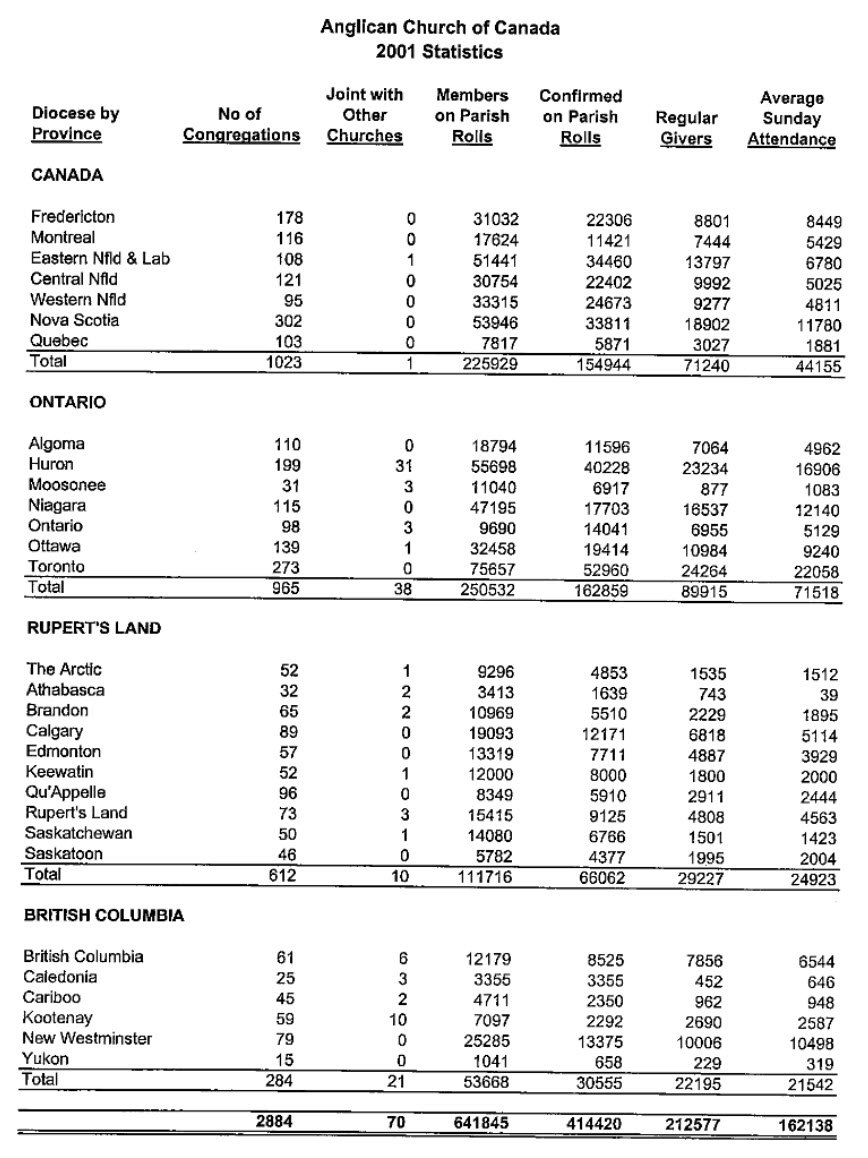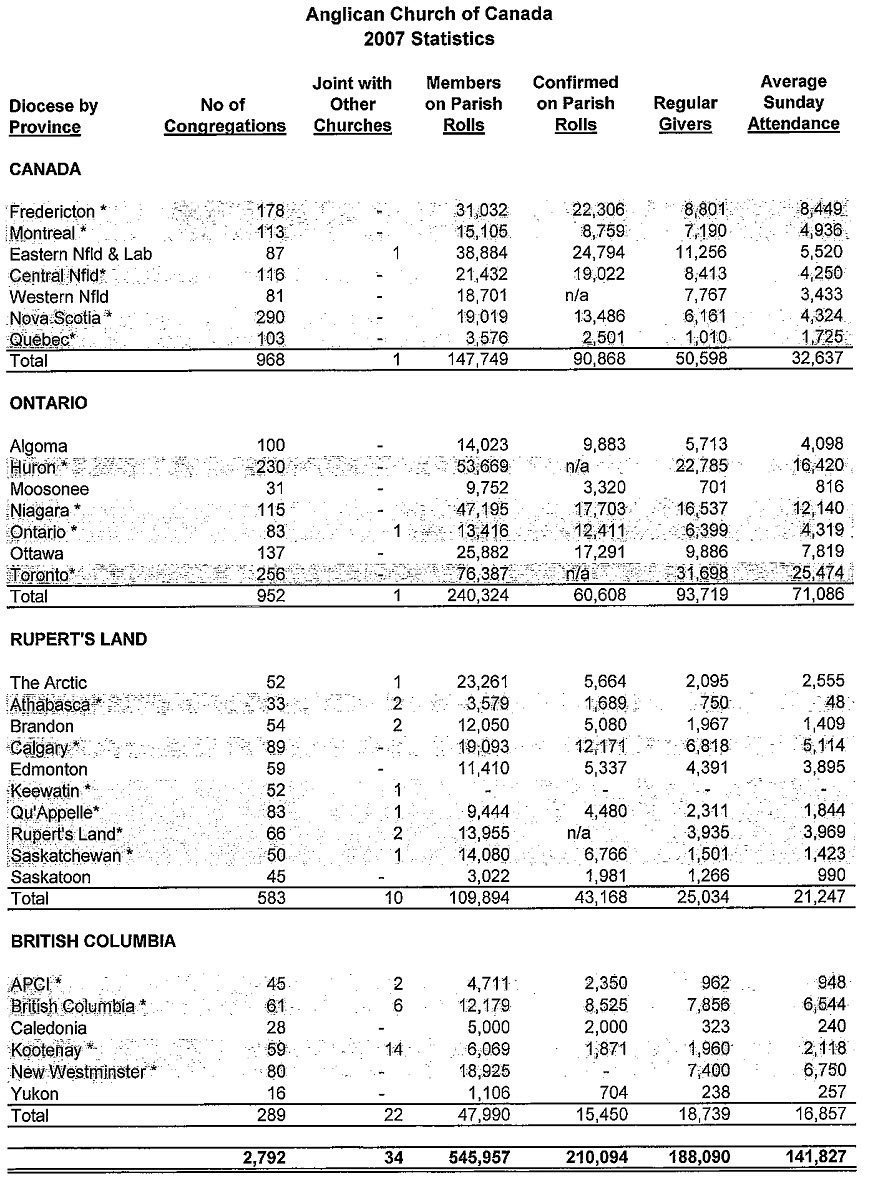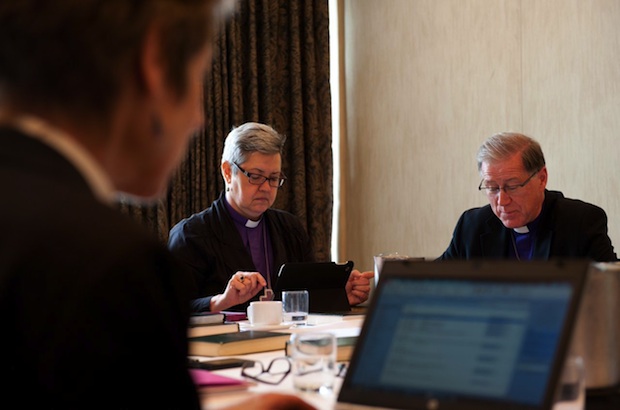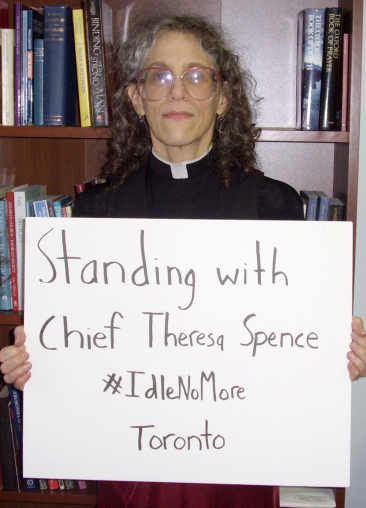By Andrew Symes:
In case we have forgotten, a very unpleasant court case was concluded around three years ago in Canada, when the Anglican Diocese of New Westminster won their battle to evict four parishes from their church buildings.The parishes in question were guilty only of standing firm for historic Christian faith, and refusing to go along with the radical revisionist theology of the Diocesan leadership. Going back further: in 2002 the New Westminster Diocesan Synod had approved rites for the blessing of same sex relationships. After Gene Robinson was consecrated Bishop of New Hampshire (ECUSA) the following year, the fabric of the worldwide Anglican Communion was irrevocably torn, but despite patient efforts by global Anglican leaders resulting in various communiqués (for example the Windsor Report of 2004 and Dromantine Communique of 2005), the Anglican Church of Canada approved New Westminster’s actions, and continued with their push to fully approve same sex relationships.
Biblically faithful Anglican parishes in Canada who could not accept the doctrinal and ethical innovations, and who wanted to continue with historic Anglican Christian faith, were left with no option but to seek alternative oversight from outside the Province of Canada. In New Westminster the Bishop began a programme of aggressively pursuing “dissenting” parishes through the courts, seizing church buildings and bank accounts, and dismissing clergy and church wardens. The Bishop in question believed he was acting “prophetically”, being consistent with his own theological thinking, which also involved repeatedly denying key doctrines of the Christian faith, such as the authority of Scripture and the uniqueness of Christ. His name was Michael Ingham.
Last week the same Michael Ingham, now retired as Diocesan but still actively promoting his creed, was in Coventry with a delegation from the Anglican Church of Canada and the Episcopal Church of the USA. They were here to promote…reconciliation. The thinking behind this is summarized in this report, as follows: The divisions that have occurred in the Anglican Communion have come as a result of pride, of certain people claiming that they are “orthodox” and correct in their understanding of theology and ethics, and that those who hold different views are wrong. In fact, while we may take different views on some interpretations of Scripture, and we may apply the Gospel differently in different contexts, essentially we are all one family; we believe the same things, and we simply need to spend time listening to each other in honest respectful conversation. Reconciliation can occur when as a Eucharistic community, Anglicans come together in commitment to each other and in mission to the world.
This sounds as wonderful as motherhood and apple pie, but there are at least two major problems with it. The first is theological. Treating another human being with respect and honour, a command which applies to all, cannot be confused and conflated with the profound unity that comes within the body of Christ among those who have been reconciled through the cross, by repentance from sin and faith in the crucified and risen Messiah. And humbly learning from a person who has very different philosophical, theological and ethical viewpoints, whether they are non-religious, from another faith or even within the same church, does not necessarily entail having to affirm that person as a fellow believer. A Christian can be committed to reconciliation and bridge-building in local communities and in society, while maintaining that certain theological positions are true and others false. The idea of a completely “inclusive” church is a contradiction in terms, as even the most liberal Christians have boundaries where they would wish to exclude from fellowship certain types of thinking which they consider to be incompatible with Christian faith. So a project of “reconciliation” which seeks to force recognition of those with totally different, even opposite understandings of Christian faith as part of the same body, is theologically and ecclesiologically incoherent.
The second problem is a simple one of history of recent conflict. The leaders of the Anglican Church of Canada and TEC not only split the church in their own land with their heterodox doctrines and aggressive litigation against their fellow Christians, but caused schism in the worldwide communion, costing incalculable time, money and effort and a terrible stain on the church’s witness. Yet it is they who now claim to be the messengers of reconciliation, as if they have done nothing wrong, as if all the conflict in the Anglican Communion comes from the GAFCON side. If they were able to articulate repentance for what they have done there would surely be a case for a new listening. But instead, we see these architects of schism coming to Britain to lecture on how to bridge divides and bring together parties who disagree.
The official report of the conference can be found here.
The liberal Canadian-American axis have brought to this conference delegates from different parts of the world, especially Africa. We know that most African Anglicans are conservative in their theology and would be suspicious of the revisionism of their fellow Anglicans in the West. Why did these participants come? There are three obvious reasons. First, some may have come into office since the days of the most bitter disputes resulting in the first GAFCON of 2008. Things have calmed down since then. The world has moved on; we have got used to gay Bishops and gay marriage. Secondly, money. It must be difficult to resist the offer of a free trip to England and a gift to your Diocese, especially if it is couched in terms of being part of a reconciliation project. But the third most compelling reason for these Africans taking part in this event was the presence of a very special delegate, yes, the Archbishop of Canterbury himself. We are told that Justin Welby spent a day in Coventry in fellowship, worship and consultation about church unity with Michael Ingham and his friends, with their recent history of persecuting the orthodox and breaking the church. What is going on?
Just a few days before this conference, the House of Bishops released a statement about the forthcoming process of “Facilitated Conversations” in the Church of England, in which the focus shifts away from debating the theology and ethics of same sex relationships according to Scripture and tradition, to accepting both the conservative and revisionist points of view as equally valid (following the same trajectory as the Pilling Report). In other words, the Conversations should now be about building bridges, appreciating difference, creating unity in diversity – ie ‘reconciliation’.
Then, we see that Justin Welby participates in a consultation on “reconciliation” led and funded by those who began the process of splitting the Anglican Church more than 10 years ago, have continued with their beliefs and actions and have never repented. But the report of the consultation shows a departure from Anglican theology and ecclesiology as traditionally understood. Instead of mission to the world based on the clear witness of the church to the Gospel of Jesus Christ revealed in Scripture, this new theology is about the church talking to itself about living together in peace despite profound differences, because the message of Scripture is apparently either unclear or not authoritative.
This must only strengthen the suspicion in many peoples’ minds that the process of Facilitated Conversations in the Church of England is being set up to reflect the “Indaba” or “Reconciliation” agenda modeled by North American liberal Anglicans. If this is the case, there can only be two possible results: either schism, confusion and further mistrust, or the C of E uniformly embracing a non-confessional stance which uncritically affirms the secular culture.




 From
From  From
From